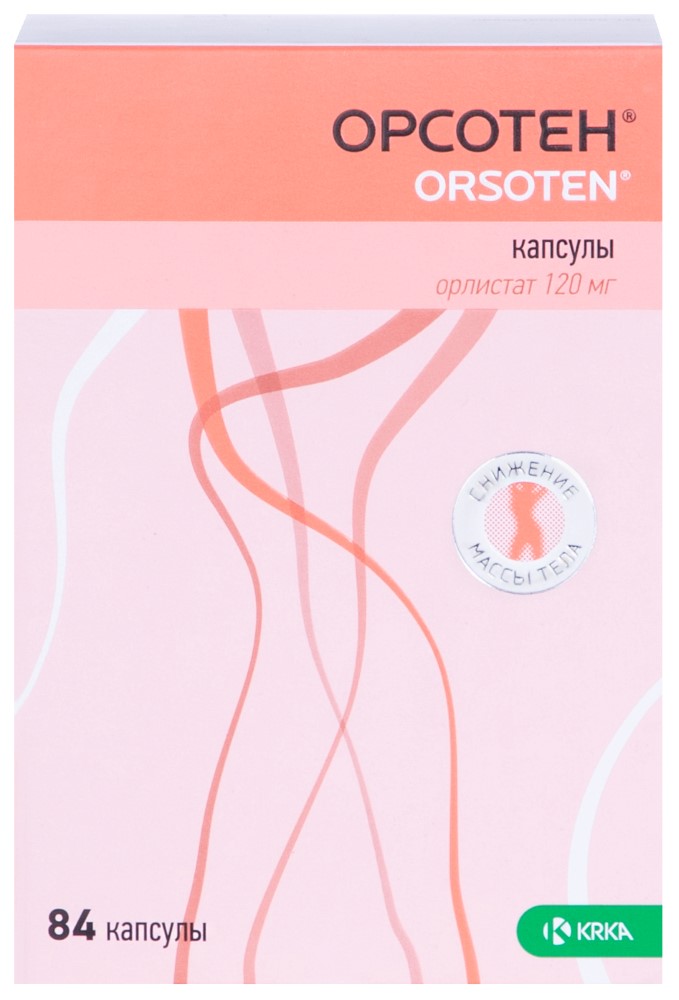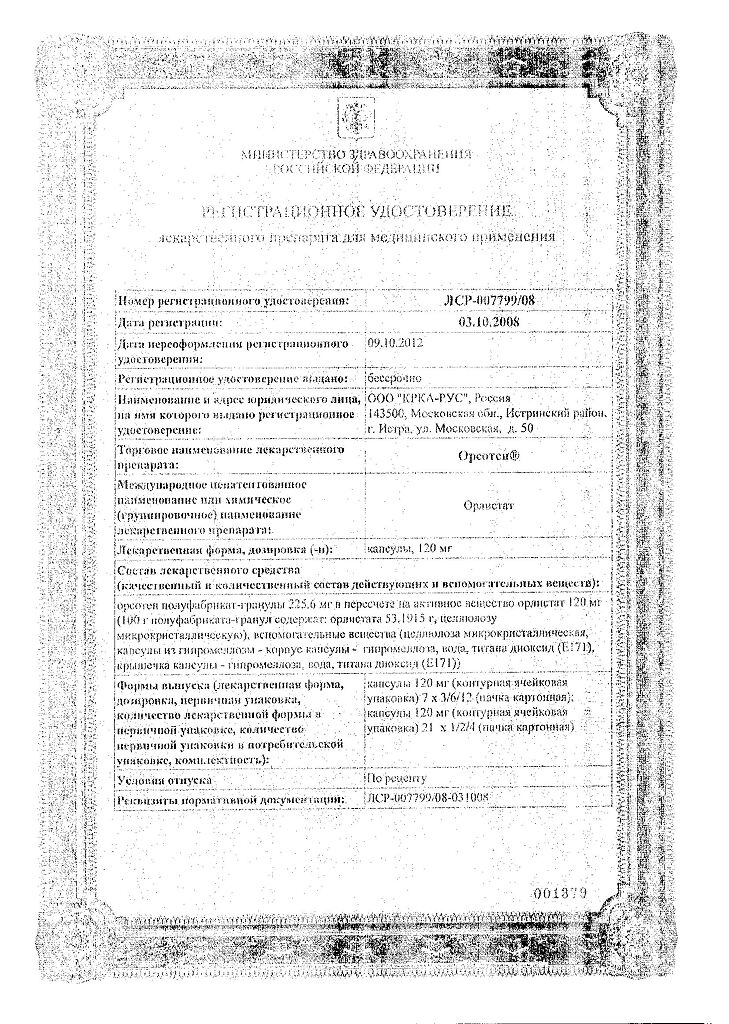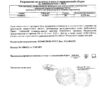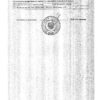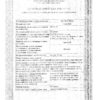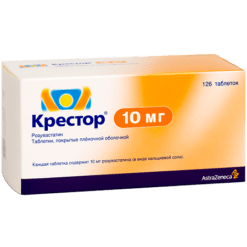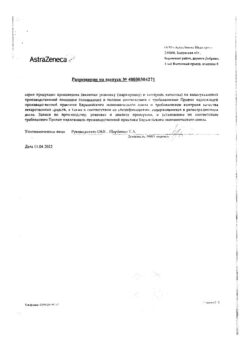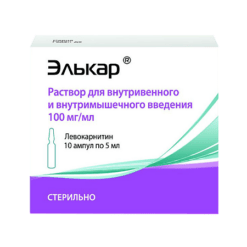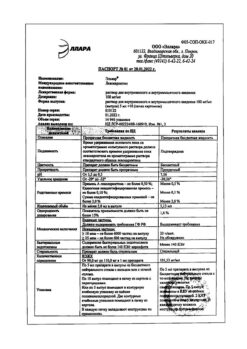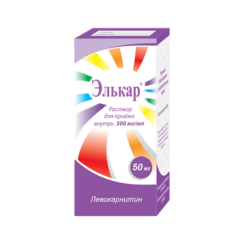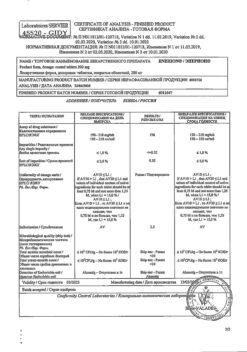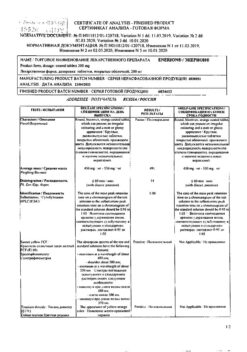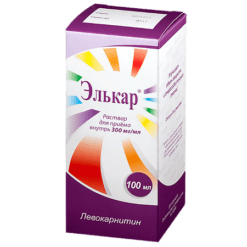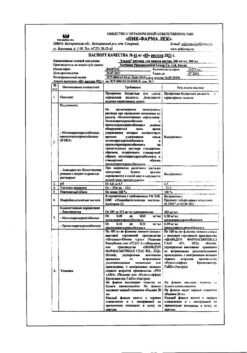No products in the cart.
Orsoten, 120 mg capsules 84 pcs
€98.15 €85.07
Description
Orsotene is a drug whose action prevents the absorption of fats by the body.
The active ingredient of the drug Orsothen is Orlistat, which, when it enters the stomach and also directly into the duodenum, binds lipases (natural enzymes that break down fats).
As a result, the dietary fat is not broken down or absorbed, but excreted with the feces. You will feel the effects of Orsoten in 24 – 48 hours maximum after taking it.
The drug itself is almost not absorbed and is broken down into substances neutral for the human body, which are also excreted with the help of the intestine.
The area of application of this drug is the fight against excess weight, including people whose excess weight is caused by diabetes.
Indications
Indications
Weight loss in adults (over 18 years of age) with excess body weight (body mass index BMI ≥ 28 kg/m2).
Use only in combination with a moderate hypocaloric diet with low fat content.
Pharmacological effect
Pharmacological effect
Orsoten is a drug that interferes with the absorption of fats by the body.
The active ingredient of the drug Orsoten is orlistat, which, when it enters the stomach, as well as directly into the duodenum, binds lipases (natural enzymes that break down fats).
As a result, fat that enters the body with food does not undergo breakdown and absorption, but is excreted from the body with feces. You will feel the effect of Orsoten within 24 hours, maximum 48, after you start taking it.
The drug itself is almost not absorbed and breaks down into substances that are neutral for the human body, which are also excreted through the intestines.
The area of application of this drug is the fight against excess weight, including in people whose extra pounds are caused by diabetes.
Special instructions
Special instructions
Orlistat is effective for long-term weight control (reducing body weight, maintaining it at an appropriate level and preventing weight gain). Treatment with orlistat leads to an improvement in the profile of risk factors and diseases associated with obesity (including hypercholesterolemia, impaired glucose tolerance, hyperinsulinemia, arterial hypertension, type 2 diabetes mellitus) and a decrease in the amount of visceral fat.
Weight loss during treatment with orlistat may be accompanied by improved compensation of carbohydrate metabolism in patients with type 2 diabetes, which may allow a reduction in the dose of hypoglycemic drugs.
To ensure adequate nutrition, patients are advised to take multivitamins.
Patients should follow dietary recommendations. They should receive a balanced, moderately low-calorie diet containing no more than 30% of calories from fat. Daily fat intake should be divided into three main meals.
The likelihood of developing gastrointestinal adverse reactions may increase if orlistat is taken with a diet rich in fat (e.g. 2000 kcal/day, more than 30% of daily caloric intake comes from fat, which equates to approximately 67 g of fat). Patients should be aware that the more accurately they follow their diet (especially in relation to the amount of fat allowed), the less likely they are to develop adverse reactions. A low-fat diet reduces the likelihood of developing gastrointestinal adverse reactions and helps patients monitor and regulate their fat intake.
If after 12 weeks of therapy there is no reduction in body weight by at least 5%, orlistat should be discontinued.
Active ingredient
Active ingredient
Orlistat
Composition
Composition
1 capsule contains:
Active substance:
orsoten semi-finished granules;
Excipient:
microcrystalline cellulose.
Pregnancy
Pregnancy
According to the results of preclinical studies: teratogenicity and embryotoxicity were not observed when taking orlistat.
There are no clinical data regarding the use of orlistat during pregnancy, therefore orlistat should not be prescribed during pregnancy.
Since there are no data on use during lactation, orlistat should not be taken during lactation.
Contraindications
Contraindications
Hypersensitivity to orlistat or to any of the components of the drug;
glucose-galactose malabsorption syndrome;
cholestasis;
concomitant therapy with cyclosporine;
age up to 18 years.
Side Effects
Side Effects
Adverse reactions to orlistat were mainly observed in the gastrointestinal tract and were caused by an increased amount of fat in the feces. Typically observed adverse reactions are mild and transient. The appearance of these phenomena was observed at the initial stage of treatment during the first 3 months (but not more than one case). With long-term use of orlistat, the incidence of side effects decreases.
There are: flatulence accompanied by rectal discharge, urge to defecate, greasy/oily stools, oily rectal discharge, loose stools, soft stools, inclusions of fat in the stool (steatorrhea), pain/discomfort in the abdomen, increased frequency of bowel movements, pain/discomfort in the rectum, urge to defecate, fecal incontinence, dental damage and gums; hypoglycemia in patients with type 2 diabetes, headache, anxiety, flu, fatigue, upper respiratory tract infections, urinary tract infections, dysmenorrhea, rarely: allergic reactions (eg itching, rash, urticaria, angioedema, bronchospasm, anaphylaxis); very rarely – diverticulitis, cholelithiasis, hepatitis (possibly severe), bullous rash, increased levels of liver transaminases and alkaline phosphatase.
Interaction
Interaction
Patients receiving warfarin or other anticoagulants and orlistat may experience a decrease in prothrombin levels and an increase in the international normalization ratio (INR), which leads to changes in hemostatic parameters.
No interactions were observed with amitriptyline, biguanides, digoxin, fibrates, fluoxetine, losartan, phenytoin, oral contraceptives, phentermine, nifedipine GITS, sustained-release nifedipine, sibutramine, furosemide, captopril, atenolol, glibenclamide, or ethanol.
Increases the bioavailability and lipid-lowering effect of pravastatin, increasing its plasma concentration by 30%. Weight loss can improve metabolism in patients with diabetes, as a result of which it is necessary to reduce the dose of oral hypoglycemic agents. Treatment with orlistat may potentially interfere with the absorption of fat-soluble vitamins (A, D, E. K). If multivitamins are recommended, they should be taken no earlier than 2 hours after taking orlistat or before bedtime.
When taking orlistat and cyclosporine simultaneously, a decrease in the level of cyclosporine concentration in the blood plasma was observed, therefore it is recommended to determine the level of cyclosporine concentration in the blood plasma more often.
Patients receiving amiodarone should undergo more careful clinical observation and ECG monitoring, because Cases of decreased plasma amiodarone concentrations have been described.
Storage conditions
Storage conditions
At a temperature not exceeding 25 °C
Shelf life
Shelf life
2 years
Manufacturer
Manufacturer
KRKA-RUS, Russia
Additional information
| Shelf life | 2 years |
|---|---|
| Conditions of storage | At a temperature not exceeding 25 °C |
| Manufacturer | KRKA dd Novo mesto, Slovenia |
| Medication form | capsules |
| Brand | KRKA dd Novo mesto |
Related products
Buy Orsoten, 120 mg capsules 84 pcs with delivery to USA, UK, Europe and over 120 other countries.

